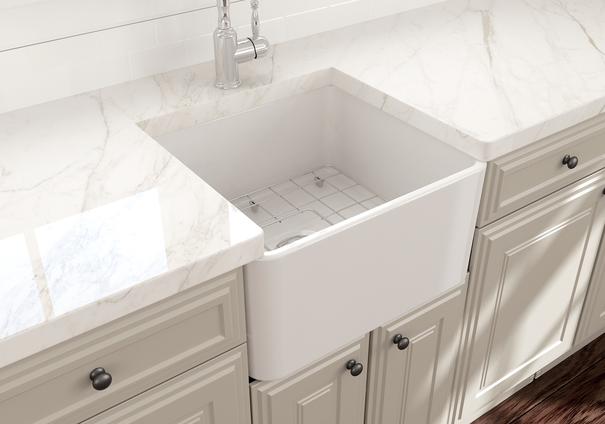All-in-One Kitchen Sink Buying Guide
A house's kitchen area is one of its most essential parts. In the kitchen, one prepares the food that the heart of the home beats. Consequently, the kitchen is where one spends most of one's time. You must maintain your physical and mental well-being by adopting the best hygiene practices in your kitchen. Dirty dishes in the kitchen sink have a direct impact on your mood. A kitchen sink is an essential part of your house interior in today's society, so washing up dishes is not a chore.
What are Kitchen Sinks?
A kitchen sink is a bigger washbasin that is installed in your kitchen. You can use them to hold dirty dishes and utensils. Your kitchen sink needs to be large enough to accommodate the size of your family, the size of your kitchen, and the amount of water that you use every day. When you live with two kids and your partner in a family of four, and you only have time to do the dishes at night, you will probably need two kitchen sinks to avoid the mess of dirty dishes piling up.
Why Choose a Ceramic Sink?
It is one of the best-suited materials to be used for your kitchen sink due to its versatility, well-established history, and ability to be combined with a variety of worktops, such as wood, glass, or granite. Modern sinks once considered a butler sink or Belfast sink, come in the set and undercount styles and the more traditional farmhouse and butler styles. Many people are unaware that ceramics are natural products made from readily available raw materials, such as clay, kaolin, quartz and, feldspar. The result is that ceramic sinks are durable, robust, and environmentally friendly, both when they are made and when they are disposed of.
Our Ceramic sinks are glazed to have a very smooth, seamless finish that prevents limescale and dirt from adhering to them, making them super easy to clean. Additionally, ceramic pieces will not be stained or tainted by the food you're preparing.
Since ceramic does not have dimples or scratches to hide in, germs cannot thrive on its smooth surface. Therefore, ceramic sinks are hygienic as well. Ceramic is a durable and hard-wearing material that does not scratch or stain, and it is not vulnerable to denting. Also, ceramic sinks are resistant to chemicals, so you don't need to worry about washing them with household cleaning products. They can withstand extremely high temperatures. There are many different shades of ceramic sinks, including white, chestnut, and black, and they are colorfast, which means they will not fade over time.
Maintenance Tips for Kitchen Sinks
- To prevent food particles from clogging your drainage system, place a strainer with fine holes over the water draining hole.
- Additionally, it is eco-friendly to throw food bits into the trash before washing the utensils.
- Keep your kitchen sink as dry as possible and clean with disinfectant after every use to maintain the health of your utensils and kitchen.
- Wash the sink with mild soap and water instead of harsh chemicals. Harsh chemicals may damage the surface.
- You can dissolve baking soda in lemon juice to remove the stains.
Final thoughts
There you have it, a look at the ceramic material for the kitchen sink. Material selection depends solely on the requirements and style preferences of the consumer. You can find even the cheapest ceramic or porcelain sink that meets your need.





